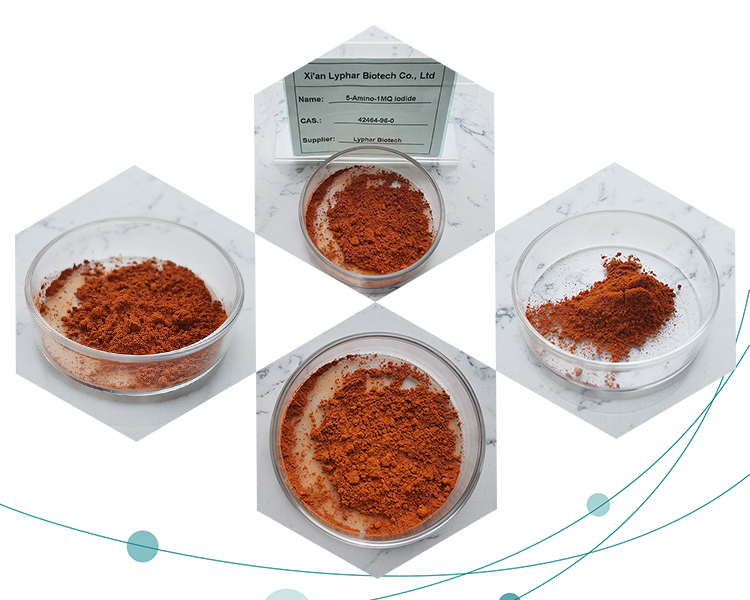5-Amino-1MQ Iodide is primarily used in research related to metabolic disorders, obesity, diabetes, and muscle regeneration. It is a derivative of 1-Methylquinolinium and is known to function as an inhibitor of nicotinamide N-methyltransferase (NNMT), an enzyme involved in metabolism and energy regulation.
Research Fields:
- Obesity and Weight Management – NNMT inhibitors like 5-Amino-1MQ are studied for their potential to enhance fat metabolism and promote weight loss.
- Diabetes and Insulin Sensitivity – Investigated for its effects on glucose homeostasis and insulin resistance.

- Muscle Regeneration and Sarcopenia – Explored for its role in promoting muscle repair and preventing muscle loss.
- Cancer Research – NNMT is linked to tumor progression in certain cancers, making 5-Amino-1MQ a potential therapeutic target.
- Aging and Longevity – Studied for its role in cellular metabolism and potential anti-aging properties.
Would you like more specific details on any of these areas?
Are there clinical trials based on 5-Amino-1MQ Iodide?
5-Amino-1MQ Iodide (5-Amino-1-methylquinolinium Iodide) is a selective inhibitor of nicotinamide N-methyltransferase (NNMT), an enzyme involved in NAD+ metabolism. Preclinical studies have demonstrated its potential in addressing conditions like obesity and muscle weakness. For instance, research indicates that 5-Amino-1MQ Iodide administration in diet-induced obese (DIO) mice led to significant weight loss, reduced adipose tissue mass, and improved muscle strength.
While these findings are promising, current research on 5-Amino-1MQ Iodide primarily consists of preclinical studies. There is a lack of publicly available information regarding clinical trials involving 5-Amino-1MQ Iodide in humans. Notably, although no human trials have been conducted to test its efficacy, at least a few clinics in the US provide oral doses of 5-Amino-1MQ Iodide to their clientele.

Given the absence of clinical trial data, the safety and efficacy of 5-Amino-1MQ Iodide for human use remain unverified. Individuals considering its use should exercise caution and consult with healthcare professionals.
